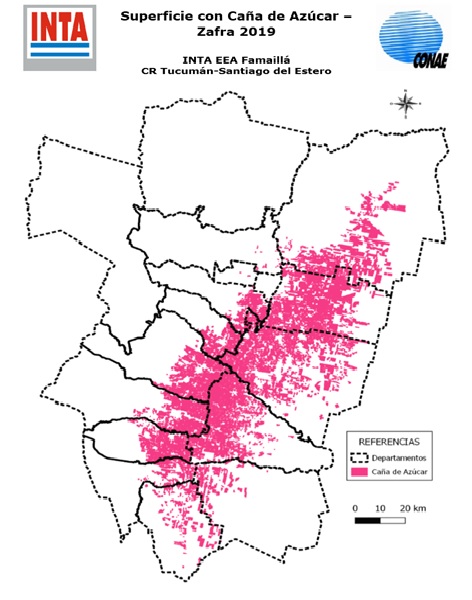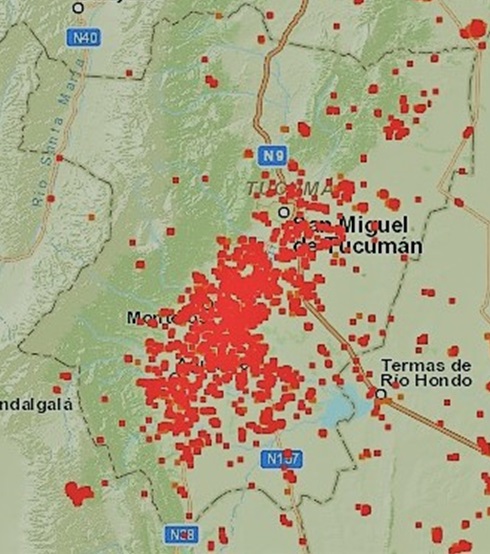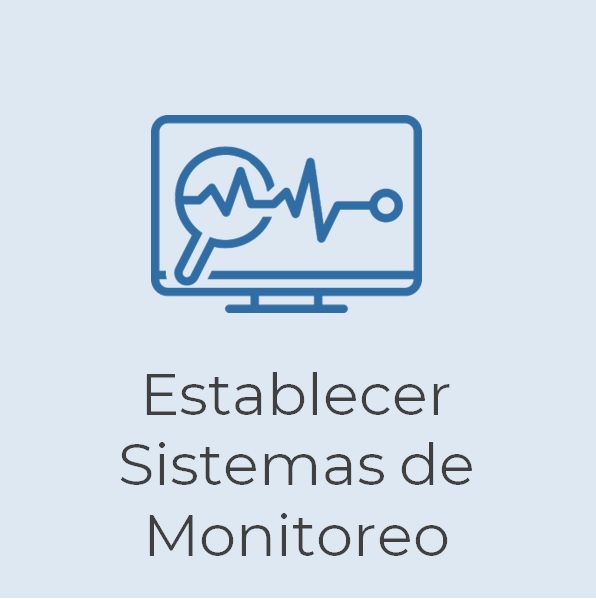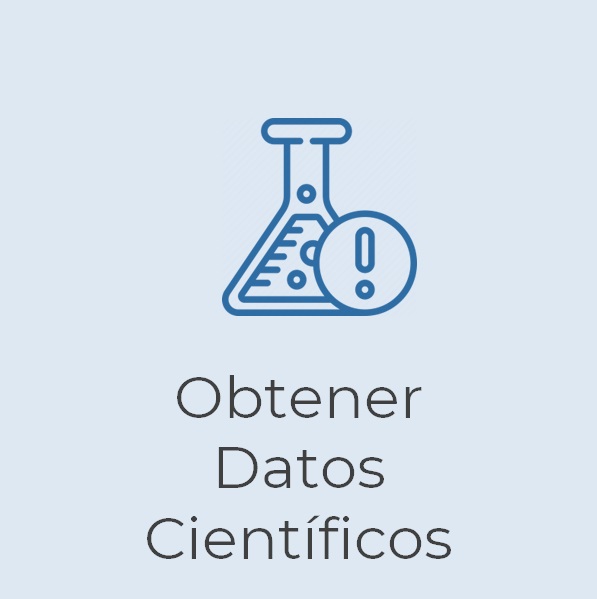Breathe2Change Networking Initiative - B2C
Connecting science and society for smoke-free air
Breathe2Change Networking Initiative - B2C
It is estimated that air pollution kills seven million people worldwide every year. Data from the World Health Organization (WHO) shows that 9 in 10 people breathe polluted air, and that low- and middle-income countries are the most exposed. Although air pollution is due to many factors, in these countries with economies based on agricultural activities, open burning of biomass is of great concern, for example, as a cheap and accessible tool for land clearing after harvest.
One of the main pollutants emitted during biomass combustion is particulate matter (PM). Its absorption through the respiratory tract is increasingly associated with serious health problems such as respiratory and cardiovascular diseases in the general population, cognitive problems in children and the elderly, premature births and low weight of newborns. In addition, air pollution threatens the environment: it reduces crop yields and affects precipitation and temperature patterns.
Due to the intense agricultural activity and geographical and climatic factors such as lack of rain, high temperatures and strong winds, the province of Tucumán is the perfect example of an area highly affected each year by the open burning of biomass related to the cultivation, in this case, of sugar cane.
Although the damage to local fauna and flora is more evident, the effects on local air pollution and regional transport of pollutants generated by these phenomena cannot be assessed without the use of ground-based monitoring systems. Countries with more developed economies have established robust and expensive air quality monitoring systems. Not so in many developing countries that lack this type of stations. This leads to a lack of information that helps decision makers work on evidence-based policies to reduce exposure and the associated impact of air pollution on the environment and people’s health.
The proposed Networking initiative: Breathe2Chang
In order to compensate for this lack of air quality monitoring and build institutional systems to address this issue, the Breathe2Change initiative was born. Its objective was to create the first air quality monitoring network in Tucumán, Argentina and thus provide an open access data platform and inform citizens about local air quality in real time. To achieve this, a low-cost surveillance approach was adopted using environmental sensors connected via the Internet.
The use of this network focuses both on a scientific perspective, in which the main objective is to study the potential of low-cost detection technologies, and on a social perspective of educational activities and citizen science, where the main objective is to involve citizens in the measurement process and raise their awareness about environmental problems. And to carry out this task, academic institutions from Germany and Argentina, non-governmental organizations, political leaders and citizens were involved.
Objectives and functions of the participants
To achieve the proposed objectives, the Breathe2Change initiative must face 3 challenges
To address the need for a monitoring system, B2C proposed and carried out, together with Neuer Weg and the Technical University of Darmstadt, the creation of the Integrated Module of Environmental Sensors (MISA). It has sensors for particulate matter, carbon dioxide, temperature, atmospheric pressure and humidity. It has the ability to connect to the internet via Wi-Fi or SIM card and has an SD memory card slot.
The modules were studied with a test and calibration phase in Germany by the collaboration between the University of Wuppertal, the Instituto de Química del Noroeste Argentino co-dependent on CONICET and the National University of Tucumán (INQUINOA-UNT) and Neuer Weg. Later, these modules would be those that today form the provincial real-time monitoring network in Tucumán. Their geographical distribution was studied among INQUINOA-UNT researchers in close collaboration with the Secretary of State for the Environment of Tucumán (SEMA).
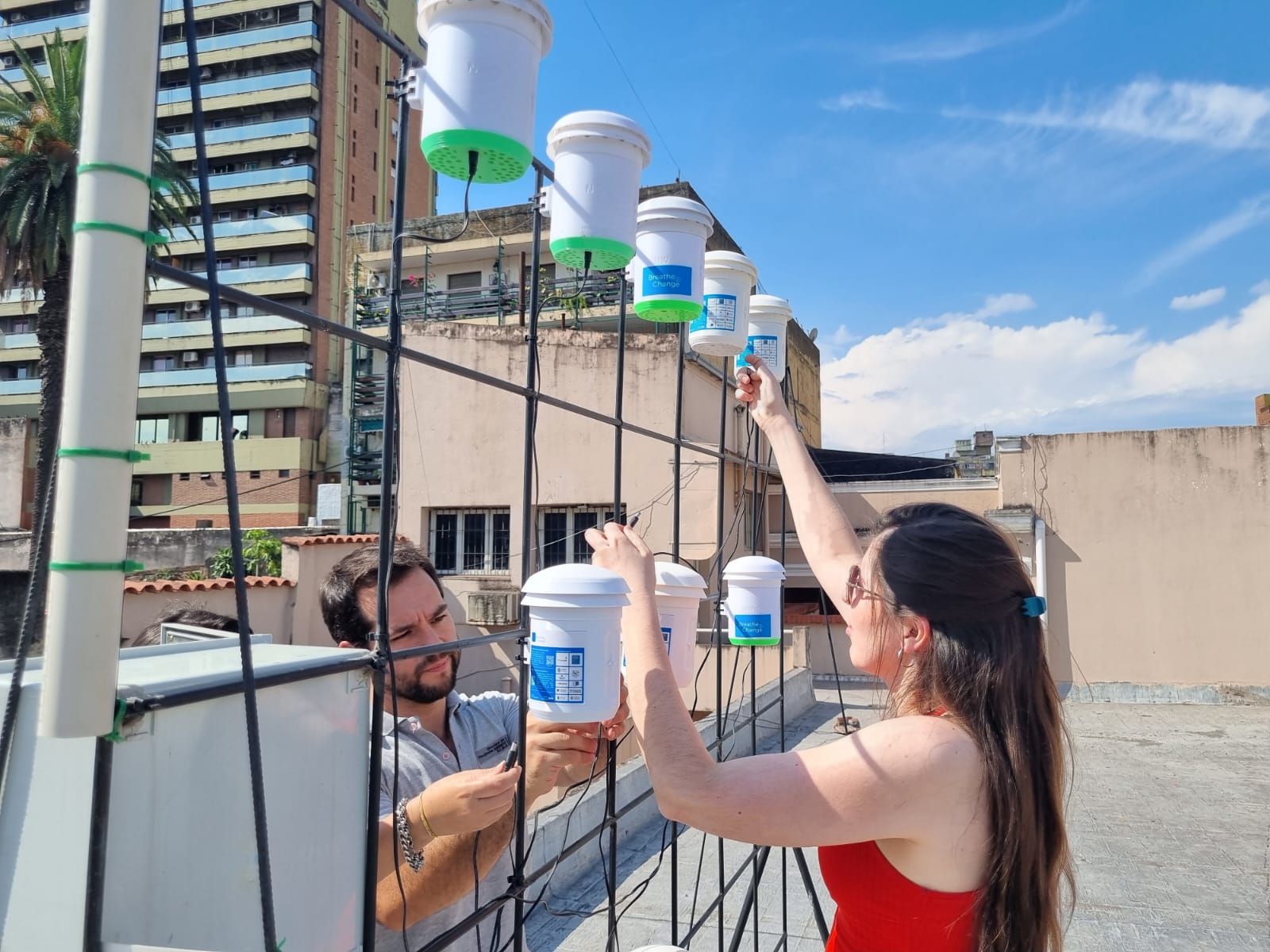
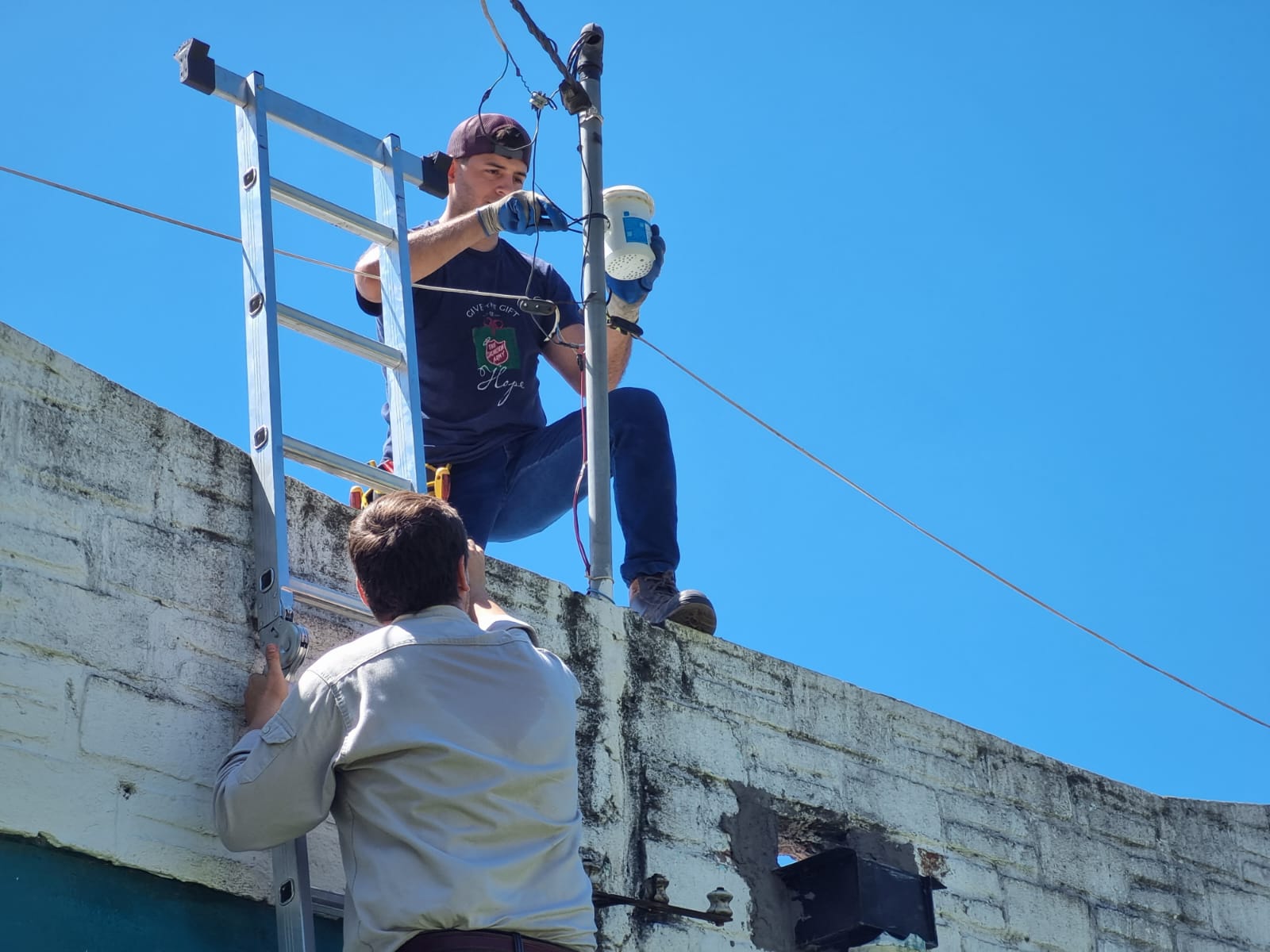
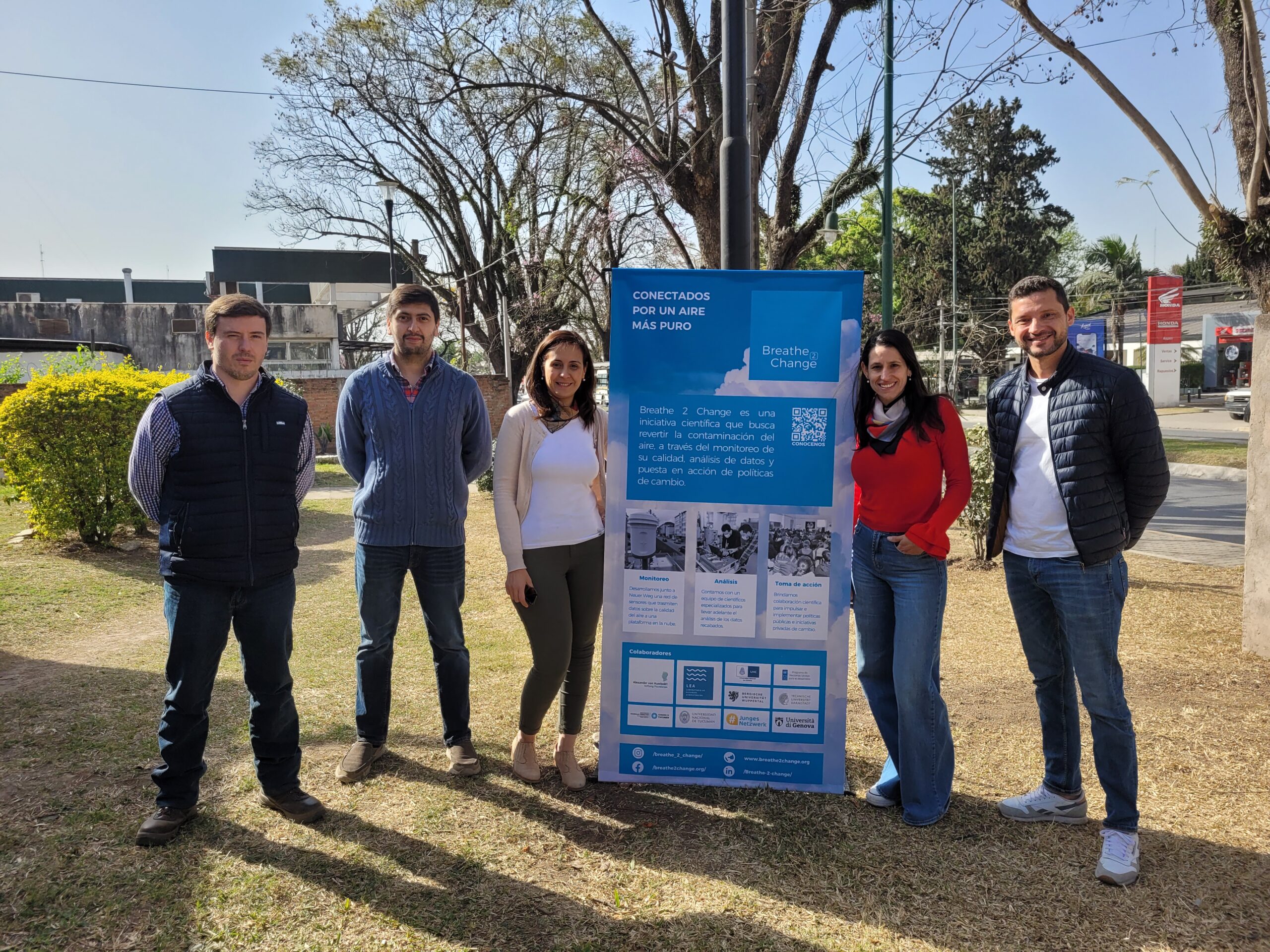
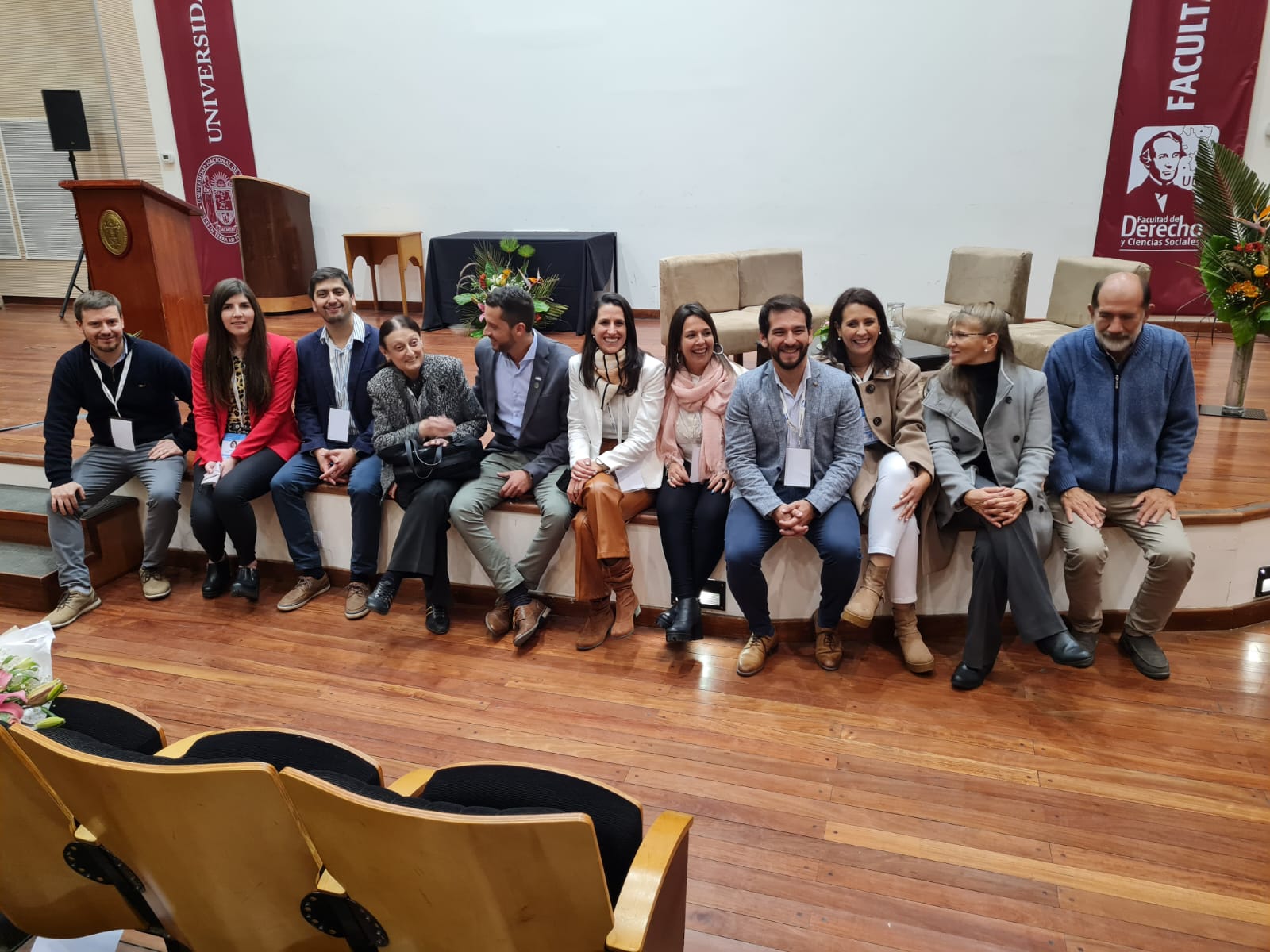




Obtaining data is possible thanks to the development of a free-access virtual platform to view MISA data. To study the data obtained and ensure the transfer of knowledge between partners, and with the purpose of serving as a space for collaboration and mutual learning between academics, students, policy makers and citizens who wish to be part of the initiative, the creation of the B2C Social Laboratory, thus the Atmospheric Studies Laboratory, belonging to INQUINOA, was built and a second laboratory is under construction in the facilities of the current Undersecretary of Environment of Tucumán.
With the objective of achieving effective communication between the scientific, political and social sectors, the launch meeting was first held to present the Breathe2Change initiative in the province of Tucumán.
The dissemination and communication of the results is carried out both for the scientific community and for the general public, through presentations at national and international scientific meetings, scientific publications in international peer-reviewed journals, audiovisual content broadcast in various media and presence. on public social networks (Instagram, Facebook, LinkedIn).
In the 2024 agenda, B2C intends to hold a closing international workshop in order to present results obtained through dissertations as well as host scientific presentations related to environmental pollution.
In the longer term, the LEA will function as a meeting point to collaborate with other environmental initiatives. To do this, we have the support of the Accelerator Lab of the United Nations Development Program to promote and commit to joint activities on air quality with the National Government and the German Embassy in Argentina.
The Breathe2Change initiative project was able to be born and follow the path we are traveling today thanks to the enormous support of the Alexander von Humboldt Foundation as well as all our partners.
AIR POLLUTION CAUSES THE FOLLOWING NUMBER OF DEATHS PER YEAR
3.220.000
Pneumonia // COPD // Cancer
1.400.000
Stroke // Alzheimer's // Cognitive impairment
2.380.000
Various heart diseases
Contact
Mail: info@breathe2change.org

